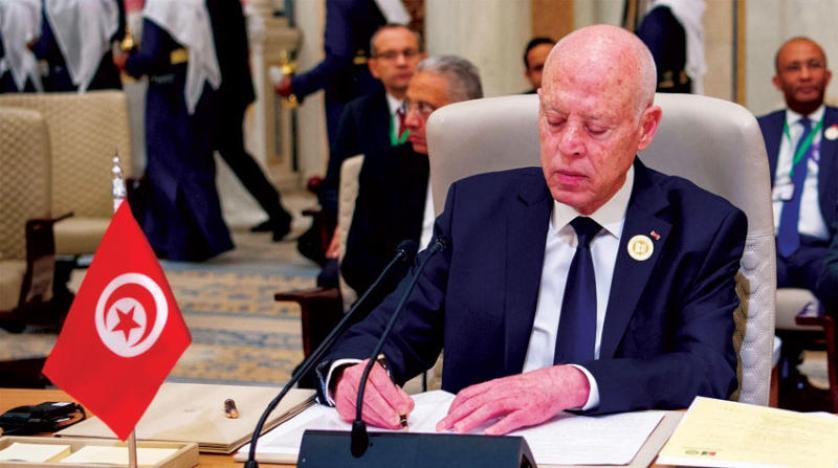 Tunisia has rejected a $2 billion bailout package from the International Monetary Fund (IMF) and instead turned its attention to the BRICS group of nations. According to Mahmoud bin Mabrouk, spokesman for the pro-president ‘July 25 Movement’, the country is seeking to join the bloc made up of Brazil, Russia, India, China, and South Africa, which is often seen as an alternative to Western hegemony. The move comes as Algeria filed an official application to join BRICS, with Egypt also expressing an interest in membership.
Tunisia has rejected a $2 billion bailout package from the International Monetary Fund (IMF) and instead turned its attention to the BRICS group of nations. According to Mahmoud bin Mabrouk, spokesman for the pro-president ‘July 25 Movement’, the country is seeking to join the bloc made up of Brazil, Russia, India, China, and South Africa, which is often seen as an alternative to Western hegemony. The move comes as Algeria filed an official application to join BRICS, with Egypt also expressing an interest in membership.
While Tunisia’s reported bid to join BRICS has not been officially confirmed, experts suggest it may be a response to the perceived US-aligned stance of the IMF. The country’s president, Kais Saied, has criticized the proposed IMF program as a “foreign diktat”. The BRICS group, on the other hand, is seen as offering less foreign interference and could potentially offer an alternative mechanism for foreign aid and support.
However, experts warn that Tunisia needs important structural economic reforms to resume pre-2011 levels of GDP growth and avoid long-term debt. Dr. Sabina Henneberg, Soref Fellow at The Washington Institute for Near East Policy, also pointed out that Tunisia will need to acquire more of a reputation as an international powerhouse and demonstrate stronger anti-West credentials, given its historical ties with Western countries like the US.
Alexandra Blackman, assistant professor of government at Cornell University, highlighted that one of the guiding principles of Tunisian politics, especially under President Saied, is the rejection of foreign interference. This mantra has been repeated throughout the IMF negotiations.
China has indicated its support for Tunisia’s reported bid to join BRICS, stating that the organization supports membership expansion and upholds the BRICS spirit of openness and win-win cooperation. It remains to be seen whether Tunisia will pursue official membership in the group and what impact this could have on the country’s economic future.



